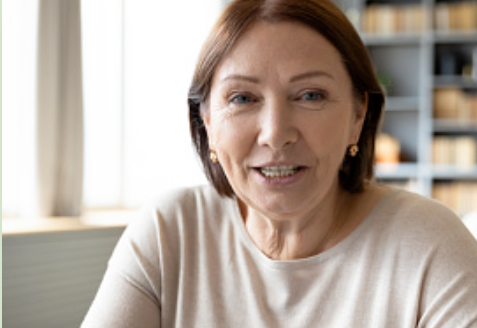Kelli, now 50, grew up one of five sisters in a middle-class family in Iowa. She began using alcohol and marijuana at 14, trying to fit in and make friends, eventually using and selling cocaine and acid.
Despite skipping school frequently due to substance use and sales, she graduated. By this time, Kelli had also met the man that she would marry and become pregnant with her daughter. She went to a community college for two years, using less than she had in a long time due to wanting to be present for her daughter.
Kelli then cycled through jobs and chosen substances. It wasn’t until she and her partner separated, then reunited, then had their second child, that he introduced her to a new substance: meth.
Meth became the most difficult drug to quit, but for a long time Kelli felt like she didn’t need to. She felt she was able to balance her use and family life. Looking back, she sees how much it changed her kids’ lives. A pattern emerged of moving, getting a new job, and starting over. Feeling like she had sold her soul, Kelli used meth for 10 years.
When a drug task force showed up with a warrant, Kelli took the opportunity: she had to quit for good. She credits that intervention with saving her life.
While she searched for an open bed in treatment centers, she attended Narcotics Anonymous (NA) meetings. She credits this organization with the support that has enabled her to have 16 years clean:
“I found my home in Narcotics Anonymous. Like, that's where I felt like I belonged…I had to find something where I felt accepted. And I felt that I could be honest, and then I felt that I could be open. And today I, um, I’m a member of Narcotics Anonymous….it's just, I think that the whole, um, for me like…AA's been around forever, NA, not super long…It's just growing. But like I went to the world convention last year in Florida and there's like twenty-six thousand people. It was phenomenal, like, to think. And it's just the energy level and that's the kind of stuff I do for my recovery. I go to women's retreats. Like, I really, like, I have to do that. I have to keep growing, and what I do today will not keep me clean tomorrow. And I have to remember that, that I have to try something different.”
“I can help somebody else through something that I've been through”

In sobriety, Kelli has gone back to school, receiving a bachelor’s degree in management. She has also bought a house and developed good relationships with her family members, who have supported her throughout recovery. While she worries about her now adult children falling into the same lifestyle she once had, she is optimistic in her ability to help them and educate them.
In five years, Kelli hopes to continue giving back through local anonymous programs.
“Honestly, in five years I’m hoping to…as far as like my recovery goes, I wanna be able to keep giving back like I’m giving back now because without it, like, like I said, I’d be dead. I just know I would be. And I wanna be able to help those people come in and get better. Because the more people that we can get off the streets and get in recovery…the better our communities are and the stronger our fellowship is, the better we can help people… just think that I have faith that…everything's gonna work out, like that God's got me. Like, I never really had that before. And I feel like it's because of the twelve steps and because we're working them, and knowing that I can get through anything and that somebody else has already been through it… And that's the same way that I can help somebody else through something that I've been through, because I did it clean. So, that's what gives me hope.”
